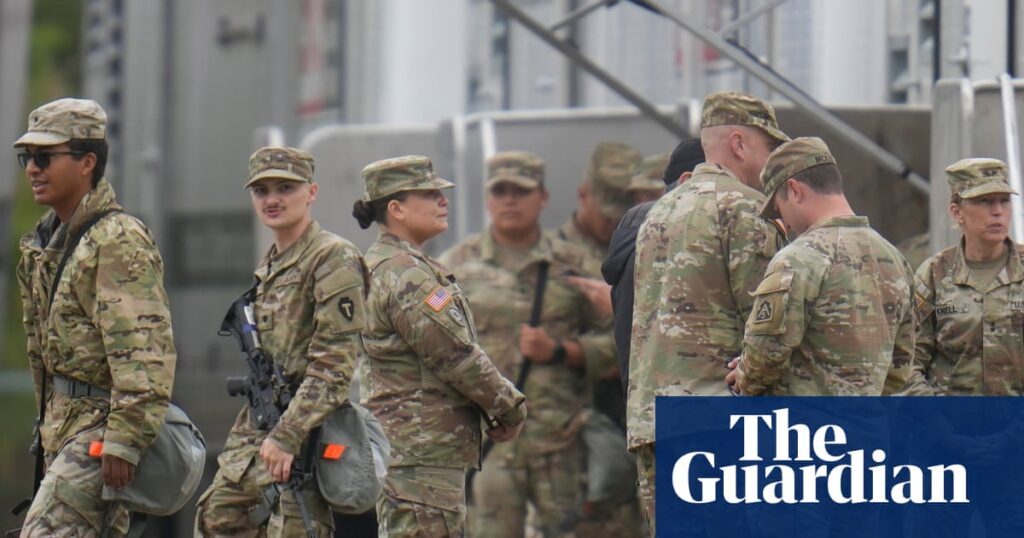
Amid escalating tensions between U.S. cities and the Trump administration over the deployment of National Guard troops, a group of former military officials has issued a stark warning. On Monday, they released a report highlighting the dangers of politicizing America’s armed forces, a move they argue could undermine public trust and the military’s apolitical nature.
The report, titled The Perils of Politicizing the US Military, cautions against the increasing domestic military deployments. It points to instances such as using National Guard troops for immigration enforcement and the removal of senior military officers and legal advisers as actions that make the armed forces appear to serve partisan agendas.
“The use of troops, bases, and ceremonies in partisan settings has blurred the line between military service and political messaging, eroding morale and public trust in the military’s apolitical character,” the report states.
Authors and Their Concerns
Authored by six former service secretaries and retired four-star admirals and generals, the report includes contributions from notable figures such as former Army Secretary Louis Caldera, former Air Force Secretary Deborah Lee James, and retired Navy Admiral Steve Abbot. Their collective experience lends weight to their concerns about the military’s perceived alignment with political agendas.
The report arrives at a critical time as the Trump administration continues to face legal challenges over its deployment of the National Guard in Portland. In Washington D.C., where the president exercises more control over the Guard than in states, troops have been ordered to remain through at least February. This move has sparked further debate about the role of the military in domestic affairs.
Military Leadership and Political Pressure
Meanwhile, the Department of Defense has experienced significant upheaval under the leadership of Defense Secretary Pete Hegseth. Last month, Hegseth abruptly dismissed the Navy Chief of Staff, and in May, he ordered a reduction of 20% in the number of four-star generals and admirals. These actions, coupled with the firing of more than half a dozen top generals since January, have raised eyebrows among military observers.
The Trump administration’s decision to dismiss the only two women serving as four-star officers further complicates the narrative. In February, Air Force General CQ Brown Jr., the Chair of the Joint Chiefs of Staff and the second Black man to hold that position, was also relieved of his duties.
“When service members, senior leaders, or military symbols are perceived as aligned with political agendas, the public begins to see the institution as partisan rather than national – and once eroded, that trust is difficult to rebuild,” the report warns.
Historical Context and Future Implications
This development follows a broader historical pattern where the military’s role in domestic politics has been contentious. During the Vietnam War, for example, the use of military force in domestic protests sparked significant public outcry. The current situation echoes those tensions, with experts warning that the erosion of the military’s apolitical character could have lasting consequences.
According to defense analysts, the politicization of the military could hinder recruitment efforts, as potential service members may be deterred by the perception of a partisan institution. Furthermore, a partisan military could struggle to retain talent and reassure international allies, potentially weakening the United States’ global standing.
As the nation grapples with these issues, the report calls for a renewed commitment to maintaining the military’s apolitical stance. The authors urge policymakers to consider the long-term implications of their actions on the armed forces and the nation’s security.
Looking ahead, the report suggests that rebuilding trust in the military will require concerted efforts from both the government and military leadership. As the political landscape continues to evolve, the challenge will be to ensure that the military remains a unifying force, free from partisan influence.






